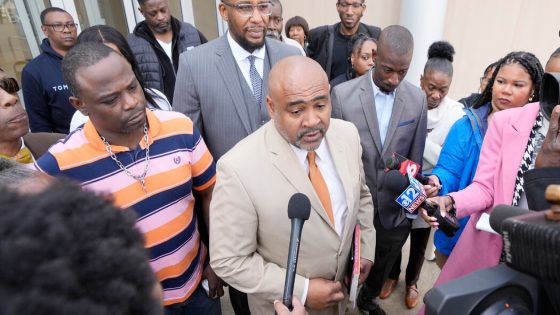By Sabrina Valle
HOUSTON (Reuters) – A contract arbitration panel that could block or green-light the $53 billion sale of Hess Corp to Chevron remains incomplete three months after the case was filed, stalling a decision on whether Exxon Mobil has a right of first refusal over Hess’ Guyana operations.
The third and final arbitrator has not been appointed, according to people familiar with the matter. A delay could mean no decision this year as Hess has forecast. Uncertainty on whether the sale can proceed has pressured Chevron shares, which are down 7.8% since the deal was disclosed.
Each side in the dispute appoints one arbitrator and those two nominate the third, according to the people. The International Chamber of Commerce (ICC), parent of the arbitration panel, did not reply to requests for comment on the timeline for appointing the third arbitrator or for deciding the case.
Hess said “the arbitration is moving forward and we expect to have a decision by the end of 2024.” But lawyers who have been involved with international arbitrations say timing varies for such decisions.
“The precise dynamics … will depend upon the rules of the arbitration,” said Chris Strong, a partner at Vinson & Elkins law firm and also vice-president for model contracts of the Association of International Energy Negotiators.
Generally, he said, if two arbitrators “are unable to agree on a third arbitrator within a certain period of time, they can apply to the administering authority, if there is one”.
“The market is hoping that there is a speedy settlement to the arbitration process, but has never understood properly what Exxon is trying to achieve,” said Mark Kelly, an analyst with financial firm MKP Advisors. “It is widely believed that Exxon has never communicated this to even Chevron or Hess.”
Chevron originally hoped to close the Hess acquisition by the first half of this year. Hess shareholders last month backed the proposed sale by a slim, 51% majority. The U.S. Federal Trade Commission has yet to weigh in on any antitrust questions.
The deal would give Chevron a 30% stake in a Guyana oil consortium that has found at least 11 billion barrels of oil and continues to plumb a 6.6 million-acre (26,800 sq km) block. The group has forecast output of 1.3 million barrels per day by 2027.
Chevron, Exxon and Hess declined to estimate timing of an appointment to the panel, which will consider Exxon’s claim that Chevron is trying to circumvent its preemption right included in the Guyana oil consortium’s joint operating agreement (JOA). Exxon is the group’s majority owner with 45%, Hess has a 30% stake and CNOOC 25%.
Chevron said Exxon’s right of first refusal does not apply to a sale of the entire Hess company.
Exxon and Hess have declined to comment on the precise language of the JOA, a confidential document.
In April, Hess said it wants the case heard by the third quarter and arbitration completed by year end. On May 9, Hess CEO John Hess asserted the final arbitrator would be appointed by May 17, according to proxy adviser Institutional Shareholder Services.
Exxon CEO Darren Woods has said he expected the dispute would slip into 2025.
LANGUAGE OR INTENT?
Exxon executives have been saying the arbitrators should consider the “intent” behind the JOA made with its original partner in Guyana, Shell PLC, which sold its stake before oil was discovered there in 2015.
“We wrote the JOA, so we have a pretty clear line of sightness to the intent and the circumstances that apply,” CEO Woods said after first quarter earnings, on April 28. “That is the point of the arbitration.”
The intent was key in a 2017 right of first refusal case in which Exxon was targeted in Canada by energy firm Northrock Resources, says Mohamed Amery, a partner at Canadian law firm Linmac LLP. Exxon ultimately won the right to sell those assets.
“When the court looks at the interpretation of a clause within a contract, it doesn’t read it in its black and white, it looks to what the discussions were between the parties,” Avery said.
Exxon said the JOA it made on the Guyana assets was based on an industry model but declined to specify which model. Most of the industry used the 2002 model from the Association of International Energy Negotiators as a base, with some altered provisions, said Strong.
Different valuations of the Guyana asset could play a role if Exxon prices Hess Guyana stake above the $53 billion offered by Chevron for Hess Corp. The parties declined to disclose their valuations.
Generally speaking, the question of right of first refusal “hinges on the specific wording of the JOA and on the value of the asset in relation to the larger change of control transaction,” said Strong.
(Reporting by Sabrina Valle; Editing by David Gregorio)
Source Agencies


